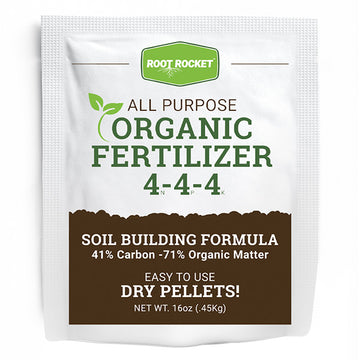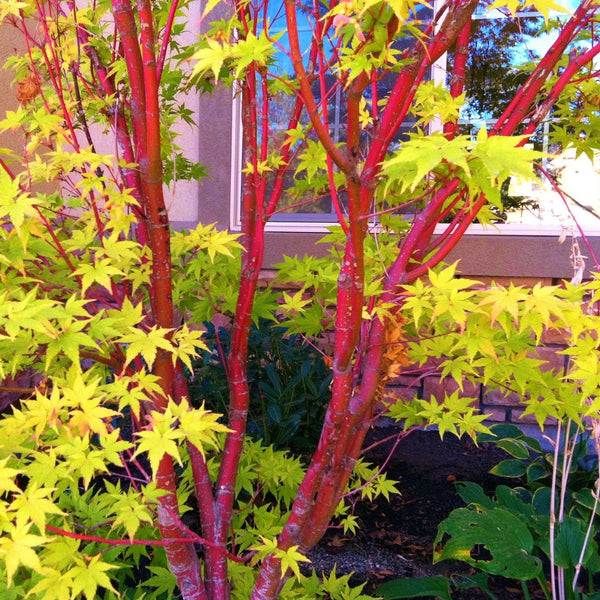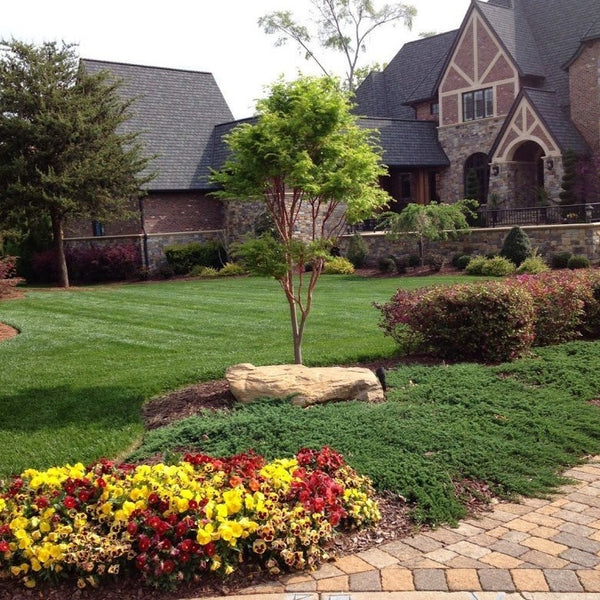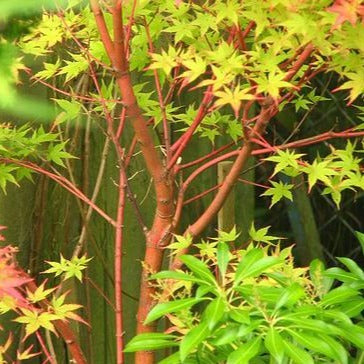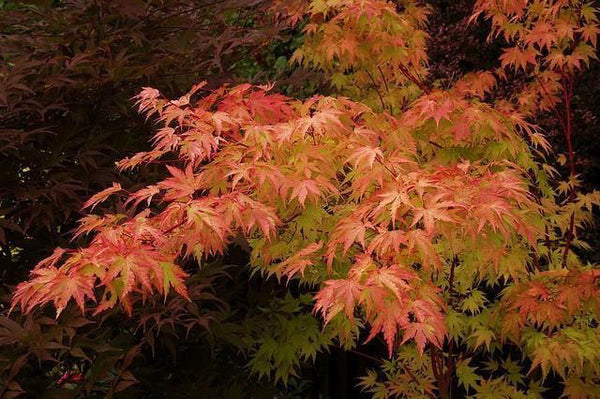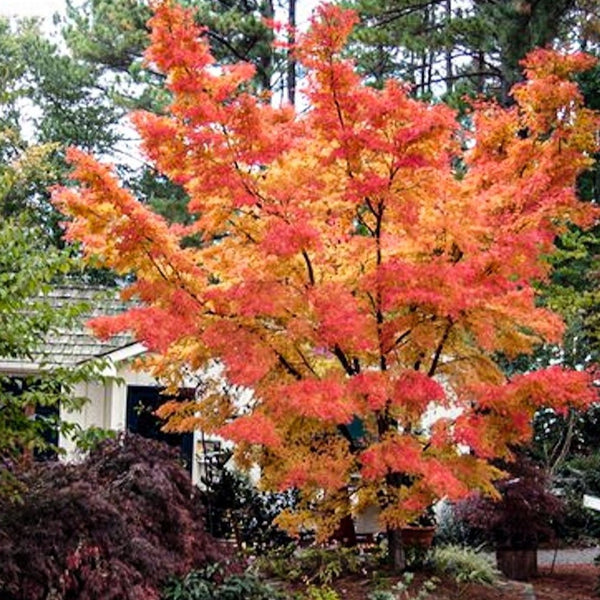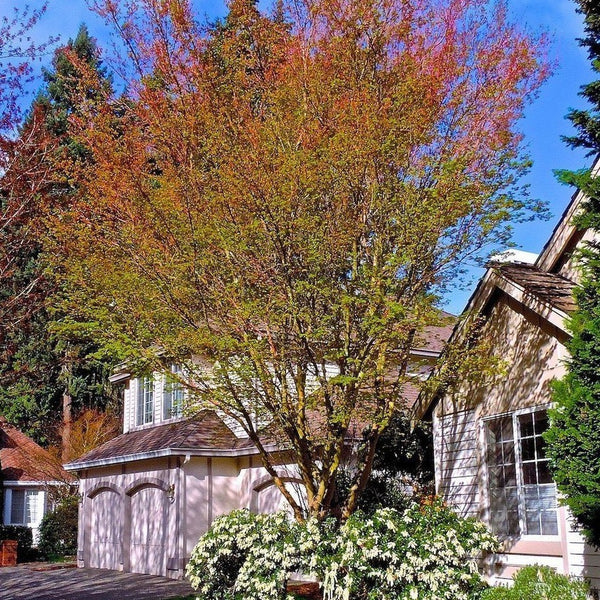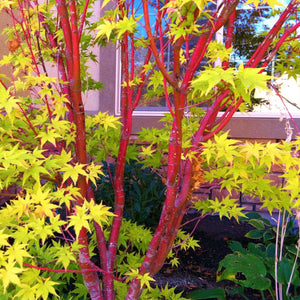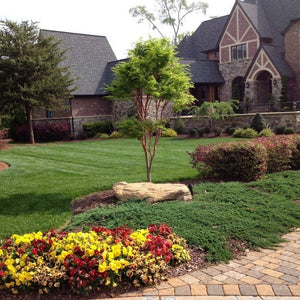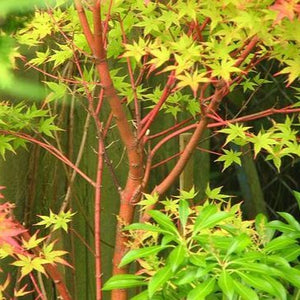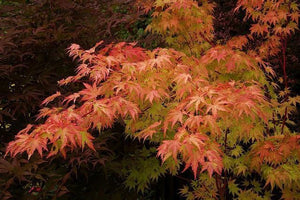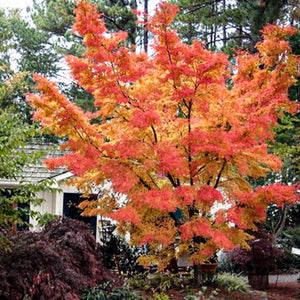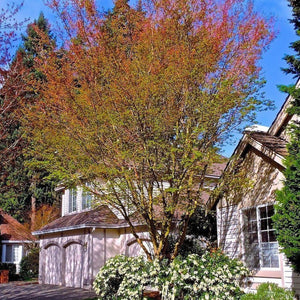Coral Bark Japanese Maple
Product Details
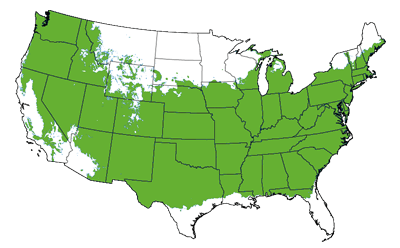 Growing Zones 5-8
Growing Zones 5-8
| Soil Type | Acidic, Adaptable, Well Drained |
| Sunlight | Full, Partial |
| Drought Tolerance | Good |
| Mature Height | 15-20 Feet |
| Mature Width | 10-15 Feet |
| Fall Color | Yellow |
| Shipping Restriction | AZ |
Its gorgeous colorful appearance and manageable size make the Coral Bark a perfect focal or accent tree, especially for smaller yards and gardens. Plant this Maple near a deck or patio. This small tree is actually large for a Japanese Maple with its mature height of 15 to 25 feet. The spread is narrow at 12 to 15 feet. This size provides a unique feature most Japanese Maples can't offer...shade.
The Coral Bark Japanese Maples are easy to grow and very low maintenance. It is resistant to most pests and diseases. This tree can tolerate full sun and is resistant to leaf scorch, a common issue in Japanese maples.
How To Prune A Coral Bark Japanese Maple
Spring and Fall are ideal times to plant. However, if you avoid freezing and hot temperatures you can plant your Maple trees almost any time of the year.
What Are Good Companion Plants For This Japanese Maple?
Azaleas, heuchera, and ferns pair well with this tree planted in mixed beds or rock gardens.
How Fast Does This Tree Grow?
Grows at a moderate rate to a mature height of 15-20 feet.
The best way to prevent disease and pests is by providing the appropriate care for your plants. Proper location choice, watering, and fertilization are the keys to your success. Scale, Mites, and Aphid are insects that can occasionally affect Japanese Maples. You can treat these pests naturally with horticultural oil, neem oil, or insecticidal soap. For severe infections you can use pesticides like carbaryl, also known as Sevin. Another potential pest of Japanese Maples is the Japanese Beetle. Look into parasitic nematodes and bacillus thuringiensis for effective, organic control of this pest.
Planting
When planting your Coral Bark Japanese Maples be sure you have the right location and conditions for your new tree to thrive. Spring and Fall are ideal times to plant. However, if you avoid freezing and hot temperatures you can plant your Maple almost any time of the year.
Japanese Maples prefer soil that is well-drained, but moist, neutral to slightly acidic, and nutrient rich. However, Japanese Maples will adapt to a variety of soils. Mulching will keep the roots moist and protect them from extreme temperatures in winter. Add a layer of 2 to 3 inches of mulch. Do not allow the mulch to touch the trunk as this increases the chances of pests and disease.
Watering
Coral Bark Japanese Maples tolerate full sun to part shade. They are one of the few Japanese Maples that tolerates full sun even in warmer zones. Like other Japanese maples you may see some leaf scorch when they are young, especially if they are not getting adequate water. Keep your tree watered if you do notice leaf scorch, but don't panic. Leaf Scorch is not going to affect the overall health of your tree.
Japanese Maples should be watered often enough to keep the soil moist. Do not allow the the soil to dry completely or be overly saturated. Either condition can harm a Coral Bark Japanese Maple.
Fertilizing
Fertilize in early spring and when planting to give your tree a boost. Choose a slow-release fertilizer. When planting take care not to burn the roots by mixing the fertilizer into the soil before placing your tree in the hole.
Maintenance
Japanese Maples don't generally require pruning, but, if needed, prune when they are dormant to remove any dead, dying, or crowded branches, or to maintain shape.
The Coral Bark Japanese Maple is a perfect accent or focal tree for water, rock or meditation gardens. Plant in a mixed bed with Junipers for out of this world texture. Add a few rocks and your neighbors will think you hired a professional! The Bloodgood Japanese Maple could also be an alternative.
For additional options, be sure to browse our Japanese Maple, Dwarf Tree and Maple Tree collections.

